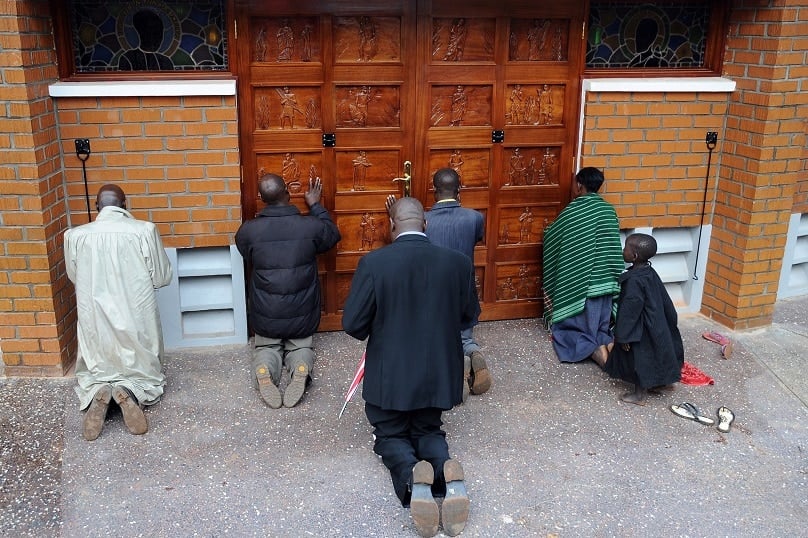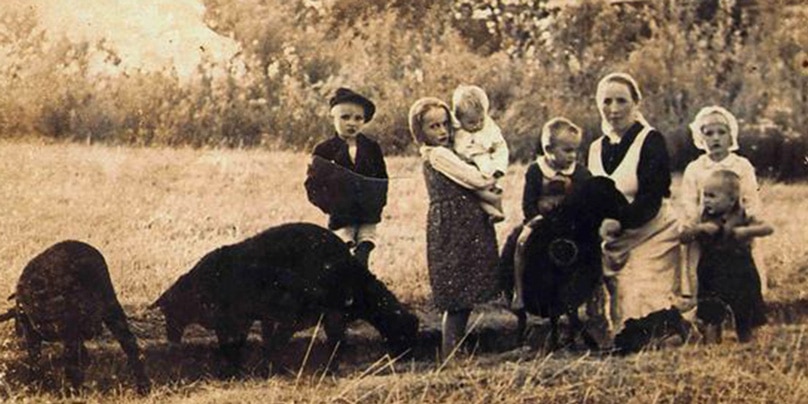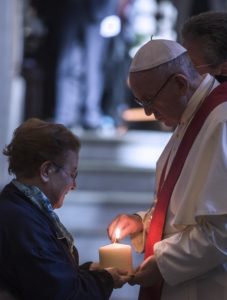
A friend marked the feast day of a martyr by asking, “How many Catholics nowadays would be willing to suffer like this?” I had to admit, to my shame, I wasn’t sure I’d willingly submit to torture rather than repudiate Christ. I love Jesus, but I am weak and a coward. Maybe, as with the girls in Flannery O’Connor’s A Temple of the Holy Ghost, I could manage if they made it quick; but otherwise, I have low hopes.
I had a similar thought, even more terrible, as I read the story of the Ulmas, a Polish family on the track to sainthood. They hid eight Jews from the Nazis, and the Nazis killed them all – first the Jews, then the Polish couple, and then all their seven children, one by one even as they cried and wailed over their parents’ bodies. The mother was heavily pregnant, too. Her martyrdom included a child who never even got to be born.

Martyrdom is one thing when you’re single and alone in the world and have nothing to live for but Jesus. Maybe I could do that. But how do you set your little children up to die for Christ? How do you make yourself open that door?
I know how, in theory. You teach them that eternal life is the only life worth dying for, and then you live that way. I know it; but doing it is another matter.
This morning, a friend asked a question in a group on social media. I’ll take out the specifics, because they don’t really matter. What struck me, and brought me almost to tears, was her openness, her willingness. She asked a group of fellow Catholics:
“What exactly is ‘[hot button religious term]?’ Is it a thing that the Church has guidelines about? I’m not really a fan of how fundamentalist/evangelicals write about it. But I don’t want to be a bad Catholic if it turns out that it is A Thing.”

Doesn’t sound like much, just asking a question. But think about what she is setting herself up for. She has heard that [issue X] is an issue, and she has seen that people get worked up over it, and some feel very strongly that God wants us to approach it in a certain way. She suspects that they are wrong, but she doesn’t want to take a chance that she’s missing something. Because the only life worth living is a Catholic life, a life with Jesus.
So she opens the door, not knowing what will come through.
That’s courage. That’s a tiny little martyrdom right there. If you don’t think so, then ask yourself whether it’s something you ever actually do. Do you look more closely into matters of the faith, to find out if you’re following Christ the way we should? Do you nervously, reluctantly open the door, seeking out more information that may very well turn your life upside down? If not, why not?
Being a Catholic means constant conversion of heart, and conversion of heart is the hardest thing in the world to accomplish – harder, even, than physically dying, because it never happens “quick.”
So if you have ever looked in the mirror and thought with shame and distress that you could never die for your faith, think again. Life in Christ is a life of a thousand, million little deaths: deaths to old ways of thinking, death to false security, death to complacency, death to trivial comforts. Any time you inquire about your Faith, you are whispering to Christ, however reluctantly, that you are open to killing off some part of yourself that does not deserve to live.
You can be sure that the martyrs who were willing to die a physical death – whether it happened quickly or was long and torturous – had trained themselves in exactly this way. They had trained themselves for that moment of martyrdom by being willing, over and over again, to step through these less dire doors. And so should all of us.
